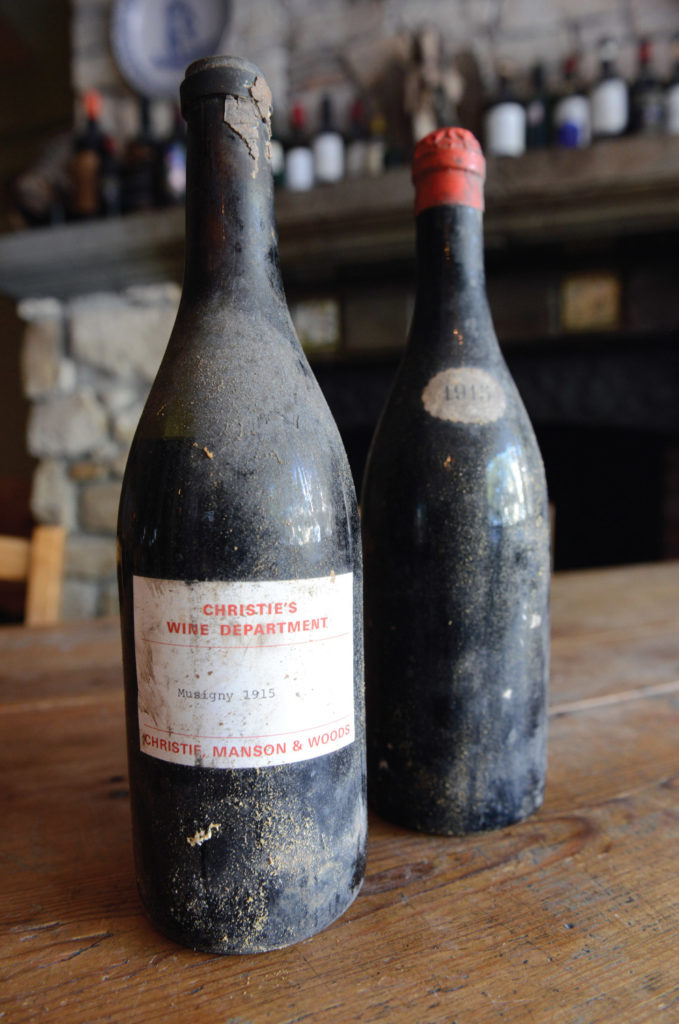 It’s 1915, the first full year of World War I. On the Western Front, the French launch their second offensive against the German army in Champagne. France is under siege, and in villages such as Musigny, the absence of men and horses put women in charge of everything—including the noble art of winemaking. Despite unprecedented challenges, this Burgundian appellation in eastern France produced incredible wine that year—a point of pride among the French. (Decades later, renowned British wine critic Michael Broadbent would bestow five stars on that Musigny vintage).
It’s 1915, the first full year of World War I. On the Western Front, the French launch their second offensive against the German army in Champagne. France is under siege, and in villages such as Musigny, the absence of men and horses put women in charge of everything—including the noble art of winemaking. Despite unprecedented challenges, this Burgundian appellation in eastern France produced incredible wine that year—a point of pride among the French. (Decades later, renowned British wine critic Michael Broadbent would bestow five stars on that Musigny vintage).
Six of those hand-blown bottles containing 1915 Musigny Grand Cru Pinot Noir fell into the hands of Walter Georis, who purchased them at auction in 1980 to add to his 30,000-bottle cellar under his famed Carmel restaurant Casanova. Ever the romantic, Georis views wine as a living entity, a “time capsule” that tells a tale of the land and its people. Originally from Belgium, the Georis family makes wine of its own, and he can’t resist the opportunity to open a 1915 Musigny to celebrate that historic harvest.
So he gathers a few friends, family members and colleagues to uncork the living testament. “What stories will it tell us?” Georis mused. On the tasting panel is Georis, his son and winemaker Damien Georis, winery owner and Grammy-winning composer Alan Silvestri and Casanova sommelier Jeff Birkmeier. No one knows what to expect after a century-long slumber. Wines can evolve in the bottle. Defects become more pronounced. The wine’s once-vibrant fruit can become desiccated, its acidity dulled by time. Invading bacteria could make it smell like a barnyard. The cork could fail, allowing the wine to oxidize and die. Ideally, it has matured beautifully to become more complex: a rare treasure.
The bottle has lost its original label, replaced by one applied by Christie’s Auction House to guarantee its provenance (although the exact grower remains unknown). The outer glass has a yellowed, dusty-moldy patina. Inside are two distinct, elongated “stains” from tannic sentiment as the bottle rested twice for long periods (presumably once in Musigny and again in Carmel).
The experts speculate. Damien Georis expects a “true and honest wine with good acidity.” Birkmeier is not so optimistic, worried the famed Burgundian fruitiness will taste “cooked.” Silvestri takes a more poetic approach: “No matter what’s in that bottle it will be something to marvel.”
The panel knows that modern Pinot Noir is made in a more fruit-forward, drink-me-now style. What gives them hope is that Old World winemakers in France constructed more complex wines with an ability to age.
Removing the cork becomes a hushed spectacle.
Birkmeier uses a special Durand opener, and takes a full three minutes on the almost-surgical task. Bits of black cork crumbs tumble onto the table, but it’s eventually eased out intact. We almost expect the sound of cathedral organ music. The poignancy is palpable. Walter breaks the silence by instructing Birkmeier to pour the wine into 10 glasses.
Time is now the enemy. Once uncorked, the century-old juice will deteriorate quickly as it’s assaulted by oxygen.
The wine’s youthful red-amber hue is a good sign. We all swirl and sniff, and the panelist’s eyes tell the story; they almost twinkle. Walter is visibly delighted. Yes, the wine is alive.
Damien smells walnuts, dried plum and tobacco. Birkmeier loves the musky notes. They quickly sip in order to chronicle the evolution out of the bottle. Gingerbread. Dried orange peel. Forest floor. “Certainly not vinegar,” Birkmeier says. “It’s elegant for its age.”
Walter savors the moment. He asks if anyone in the room can guess how much he paid for this treasure ($65). What it would fetch today at auction is immaterial to Georis, who’s more interested in putting history to his lips. He knows the people of Musigny are talking to him.
The first sips speak of bright sunshine, hunched backs, grape-stained fingers and faith in the future. But soon the wine begins to taste like a dusty version of what it once was. Quickly it fades, its death in the glass shocking yet beautiful.
Ghosts of time have revealed themselves. They’ve had their say, and we’ve lapped up the words, leaving us humble and hopeful.